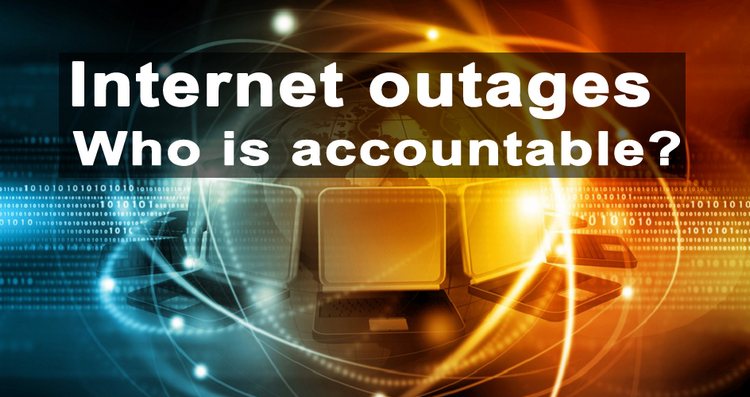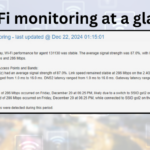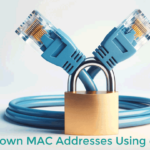Internet delivery accountability becomes critical as more traditional infrastructure gets moved to the Internet. Consumers and businesses find themselves not only dependent on their ISP but even at risk if the provider is not highly reliable.
Remote employees can get into trouble if they miss critical deadlines or suffer too much Internet downtime.
VoIP phones, media devices, and other Internet-based communications prevent most of us from getting needed information during emergencies that include widespread Internet outages.
People may find themselves unable to make calls, and Internet-based panic buttons, security, monitoring, and countless other devices may be rendered useless in such situations. Some outages even affect cellular services and 411 emergency services.
As the Internet becomes increasingly integral to our daily lives, accountability among providers and network operators becomes critical.
Those who are responsible for maintaining and facilitating the operation of the Internet must be held to high standards of reliability and transparency. This isn’t just a money-making opportunity anymore. Can profit-oriented companies be trusted to provide these services?
What constitutes an unreliable Internet provider?
An Internet Service Provider (ISP) is a company that provides Internet access to customers by offering a connection to the Internet via various technologies such as broadband, fiber optic, satellite, dial-up, and wireless.
While ISPs play a crucial role in connecting individuals and businesses to the Internet, they can sometimes be unreliable due to a variety of reasons.
One of the main reasons for ISP unreliability is the infrastructure of the network. ISPs often rely on physical cables and wires to transmit data, and these can become damaged or disrupted due to various factors such as natural disasters, construction work, or even vandalism. This can lead to disruptions in Internet service, as the data cannot be transmitted properly.
In addition, ISPs may also experience issues with their hardware and software systems, which can cause disruptions in service. For example, if an ISP’s servers or routers malfunction or become overloaded, it can result in slow speeds or a complete loss of connectivity.
Another reason for ISP unreliability is the capacity of the network. ISPs often have a limited amount of bandwidth available, which can become strained during peak usage times. This can lead to slow speeds and latency issues, as there is not enough capacity to handle the increased demand.
Another factor that can contribute to ISP unreliability is interference from external sources. For example, other wireless devices or appliances in the vicinity can interfere with the signal, leading to disruptions in service. Similarly, if the customer’s device or modem is not configured correctly, it can cause issues with the Internet connection.
ISPs can also be unreliable due to maintenance and updates to their systems. While these updates are necessary to improve the overall performance and security of the network, they can sometimes cause disruptions in service. As profit-oriented companies, upgrades can sometimes take a fiscal backseat.
In addition, ISPs may also be unreliable due to issues with customer service and support. If an ISP is unable to provide timely and effective support to customers experiencing issues with their Internet connection, it can lead to frustration and a lack of trust in the company.
Of course, ISPs may also be unreliable due to their business practices and policies. For example, some ISPs have been known to engage in practices such as throttling, which involves slowing down the connection speed for certain types of content or activities. This can be frustrating for customers and lead to a perception of unreliability.
There are various reasons why an ISP can be unreliable, including issues with the network infrastructure, hardware and software systems, capacity, external interference, maintenance and updates, customer service, and business practices.
While ISPs play a vital role in connecting individuals and businesses to the Internet, it is important for them to address these issues and strive to provide reliable and consistent service to their customers.
Outages can be costly and even dangerous
Internet outages and failures can be very costly to both homes and businesses for several reasons including disrupted communications and loss of access to information.
Internet outages and failures can also be costly for businesses and organizations that rely on the Internet for their operations. For example, a business that relies on the Internet for e-commerce or online transactions may experience lost revenue if its website is unavailable due to an outage.
Similarly, an organization that relies on the Internet for communication and collaboration may experience decreased productivity if its systems are offline.
Internet outages and failures can also be costly due to the time and resources required to resolve the issue. This can include the cost of repairing or replacing damaged equipment, as well as the cost of hiring additional staff or contractors to assist with the resolution of the issue.
When an Internet outage happens, we all find ourselves suddenly sidetracked looking for problems wondering if they are local, with the provider, or even more wide spread. There is a lot of wasted time involved in these efforts too.
It is therefore important for Internet Service Providers (ISPs) to be proactive in preventing and minimizing outages and to be transparent about the causes and resolution of outages when they do occur.
Why is accountability needed?
Internet outages are a common occurrence and can be caused by a variety of factors such as technical issues, natural disasters, or human error. These outages can have significant impacts on individuals and businesses, as they rely on the Internet for communication, entertainment, and access to information.
It is important for Internet Service Providers (ISPs) to be accountable for outages and to take steps to minimize their occurrence and duration.
Customers pay for Internet service and expect to have access to a reliable connection at all times. By holding ISPs accountable for outages, customers can be assured that their service provider is taking steps to minimize disruptions and ensure reliable service.
When ISPs are held accountable for outages, they are incentivized to invest in infrastructure and technology that is less prone to outages. This can help to reduce the frequency and duration of outages, which can be beneficial to both customers and ISPs.
When outages occur, customers often want to know what caused the issue and how long it will take to resolve it. By being transparent about the cause and resolution of outages, ISPs can help to build trust and confidence with their customers.
A field technician disconnecting a cable for a few minutes because it was the most convenient way to deal with a problem is no longer a solution.
Business practices and transparency
One key aspect of Internet accountability is ensuring that providers and network operators adhere to fair and reasonable business practices.
Internet accountability is also ensuring that providers and network operators can deliver on the promises they make.
This includes ensuring that their networks and infrastructure can handle the demands placed upon them and that they can provide consistent and reliable access to the Internet for their users.
Ensuring Internet accountability is not just the responsibility of providers and network operators, however. Governments and regulatory bodies also have a role to play in setting and enforcing standards and guidelines.
In addition to government regulation, several private sector initiatives and organizations are working to promote Internet accountability.
These can include industry groups, consumer advocacy organizations, and other stakeholders who are committed to ensuring that the Internet is a safe, fair, and reliable platform for all users.
Overall, Internet accountability is crucial for the continued growth and success of the Internet as a platform for communication, information, and commerce.
By holding providers and network operators to high standards of reliability, transparency, and security, we can ensure that the Internet remains a valuable resource for all.
How to get Internet accountability?
In addition to the efforts outlined above, monitoring critical Internet services can also help promote internet accountability.
Our monitoring data can equally help ISPs and network operators to learn about weak points, and problem areas to deal with them early on. Our solution can be used alongside central monitoring to get additional information from the field.
Our automated monitoring gives consumers, small businesses, and enterprises ways to track internet outages and service disruptions across any and all ISPs and network operators worldwide.
By providing near real-time updates and alerts, we help users stay informed about potential issues with their internet connection and allow them to report disruptions or outages to their respective providers.
This type of service can be especially useful for promoting accountability because it allows users to hold their ISPs and service providers accountable for any issues or disruptions they may experience.
By tracking and reporting outages, users can help identify and address problems, ultimately leading to a more reliable and stable internet experience.
Moreover, monitoring can also help promote transparency and honesty among ISPs and service providers.
By publicly documenting outages and disruptions, ISPs and network operators are more likely to be held accountable for any issues that arise, encouraging them to be more responsive and proactive in addressing problems.
Overall, using a service like OutagesIO.com or our MSP Sensors version for larger organizations can be a valuable tool in promoting internet accountability, and preventing finger-pointing, lost hours troubleshooting, and even potential lawsuits by providing facts, details, and historical information across all ISPs.
By providing such tools and information, and by helping users hold ISPs and service providers accountable for any disruptions or issues, we can help create a more reliable and transparent internet experience for all.









